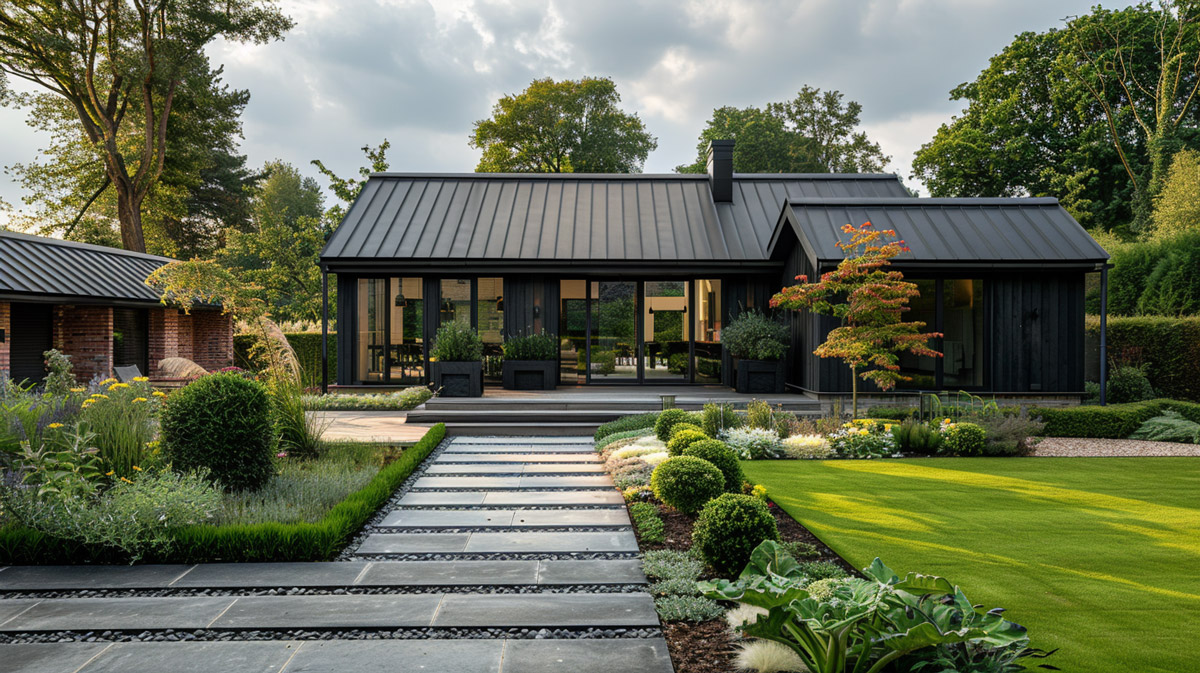
What is an Annexe?
An annexe, also spelled annex, is an additional structure connected to or situated near a primary building, designed to provide extra space and functionality without the need for relocating. Often used to expand living areas, create office space, or provide storage, annexes serve various purposes depending on the needs of the occupants.
An annexe can be seamlessly integrated with the main building or stand alone as a separate unit, offering flexibility and versatility.
By addressing space constraints without necessitating a complete move, annexes enhance the usability and value of the property.
What Are The Common Uses of Annexes?
Annexes are versatile structures that serve a variety of purposes depending on the needs of the occupants. Some of the most common uses of annexe buildings are;
Residential Annexes
- Guest Rooms: Ideal for hosting visitors with privacy.
- Home Offices: Perfect for remote work, providing a quiet workspace.
- In-law Suites: Accommodate elderly parents or extended family members.
- Recreational Spaces: Use as a hobby room, gym, or entertainment area.
Commercial Annexes
- Office Space: Expand business operations without moving to a new location.
- Storage: Extra space for inventory, documents, or equipment.
- Workshops: Ideal for creative or technical workspaces.
What Are The Benefits of an Annexe?
An annexe offers numerous advantages for both residential and commercial properties. A few of the key benefits are:
Increased Property Value
- Enhances the overall size of the property, which can increase its market value.
- Properties with annexes appeal to potential buyers looking for additional space and flexibility.
Flexibility and Versatility
- Can be used for various purposes such as guest rooms, home offices, or storage.
- Easily repurposed as family or business needs evolve over time.
Convenience
- Provides immediate space solutions without the hassle of relocating.
- Maintains proximity to the main building while offering separate, dedicated areas.
Cost-Effective Expansion
- Often more affordable than moving to a larger property.
- Maximises the use of available land or existing structures.
Support for Family Needs
- In-law Suites: Accommodates elderly parents or extended family members comfortably.
- Teen Retreats: Provides older children with their own space, fostering independence.
Considerations for Building an Annexe
When planning to build an annexe, several important factors must be taken into account to ensure a successful and compliant project. At Outerspace life we can help guide you through any process you are unsure of.
Planning and Permissions
- Local Zoning Laws: Check local zoning regulations and building codes to ensure the annexe is permissible.
- Permits: Obtain all necessary permits to avoid legal issues and potential fines.
- Neighbours: Consider the impact on neighbours and, if necessary, obtain their consent or feedback.
Design and Construction
- Architectural Consistency: Ensure the annexe matches or complements the architectural style of the main building.
- Quality Materials: Use durable and high-quality materials that blend seamlessly with the existing structure.
- Professional Help: Hire experienced architects and builders to ensure the project meets all standards and expectations.
Budget
- Realistic Planning: Establish a realistic budget that covers all aspects of construction, including labour, materials, and permits.
- Contingency Fund: Allocate extra funds for unexpected expenses or changes in the project scope.
- Cost-Effective Solutions: Explore cost-effective options without compromising on quality and functionality.
Utilities and Accessibility
- Integration: Ensure proper integration of electrical, plumbing, and heating systems with the main building.
- Energy Efficiency: Consider energy-efficient solutions to reduce long-term operational costs.
- Accessibility: Incorporate features that make the annex accessible for elderly or disabled individuals if necessary.
Potential Challenges to building an annexe
Constructing an annexe can offer many benefits, but it’s not without its challenges. Choosing the right installer or builder can help reduce these challenges significantly. Here are some of the potential hurdles you might face:
Legal and Regulatory Hurdles
- Zoning Restrictions: Local zoning laws may restrict the size, location, or use of an annexe.
- Permit Delays: Obtaining necessary permits can be time-consuming and complicated.
- Building Codes: Ensuring compliance with all building codes can add complexity to the project.
Cost Overruns
- Cost Overruns: Unexpected expenses can arise due to design changes or unforeseen issues.
- Financing: Securing funding for the project can be challenging, especially if costs exceed initial estimates.
- Maintenance Costs: Future maintenance and repair costs need to be considered and budgeted for.
Conclusion
An annexe provides a versatile and practical solution for expanding space in both residential and commercial settings. Proper planning, budgeting, and adherence to local regulations are crucial for a successful project.
Whether you need additional living space, office use, or storage, an annexe can significantly enhance the functionality and value of your property.
Understanding the nuances of annexes enables you to make informed decisions that maximise the potential of your space. Outerspace Life specialises in the design and construction of annexes, ensuring a seamless process from start to finish.
Contact Outerspace today for a free quote and transform your property effortlessly.
